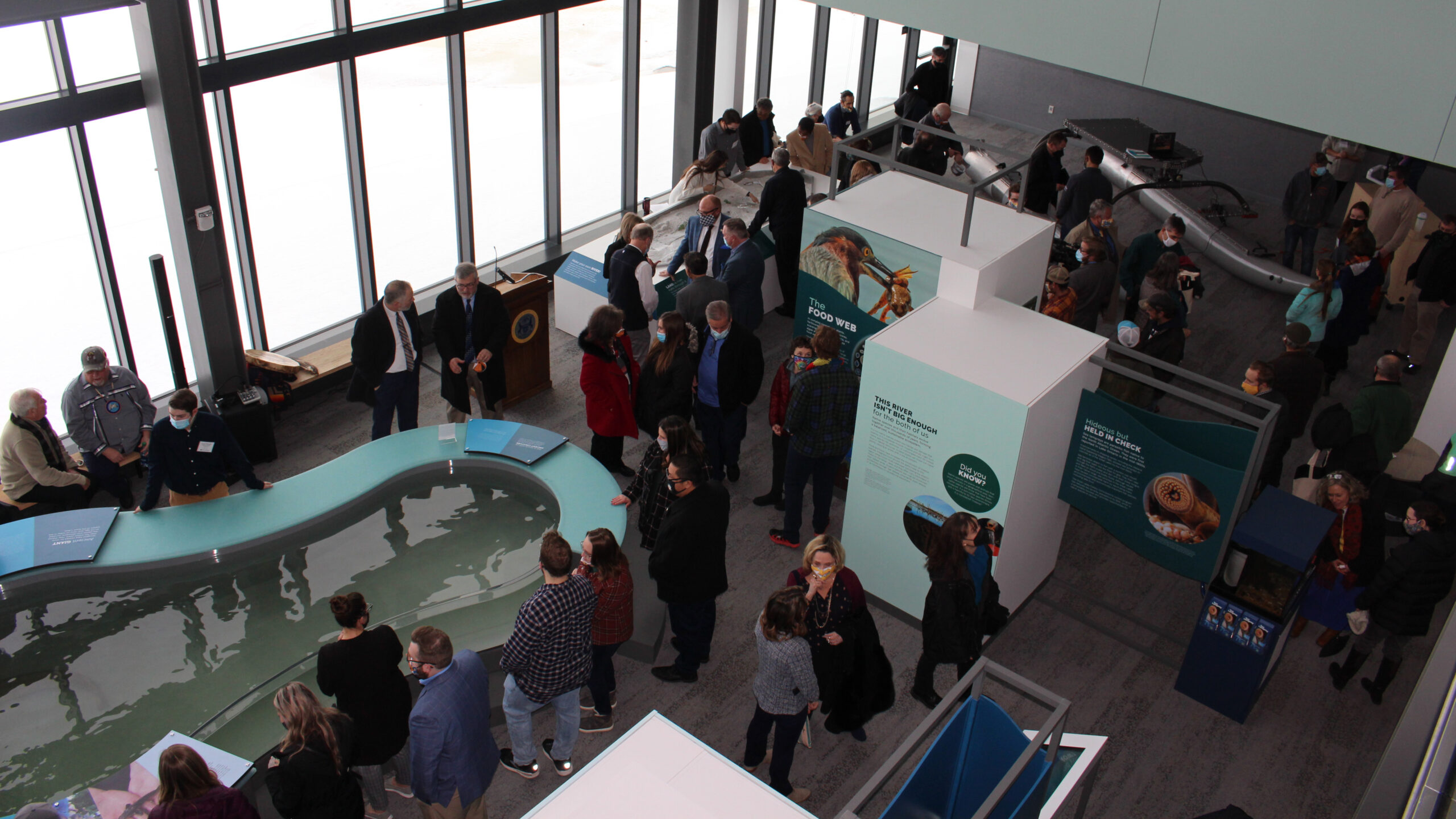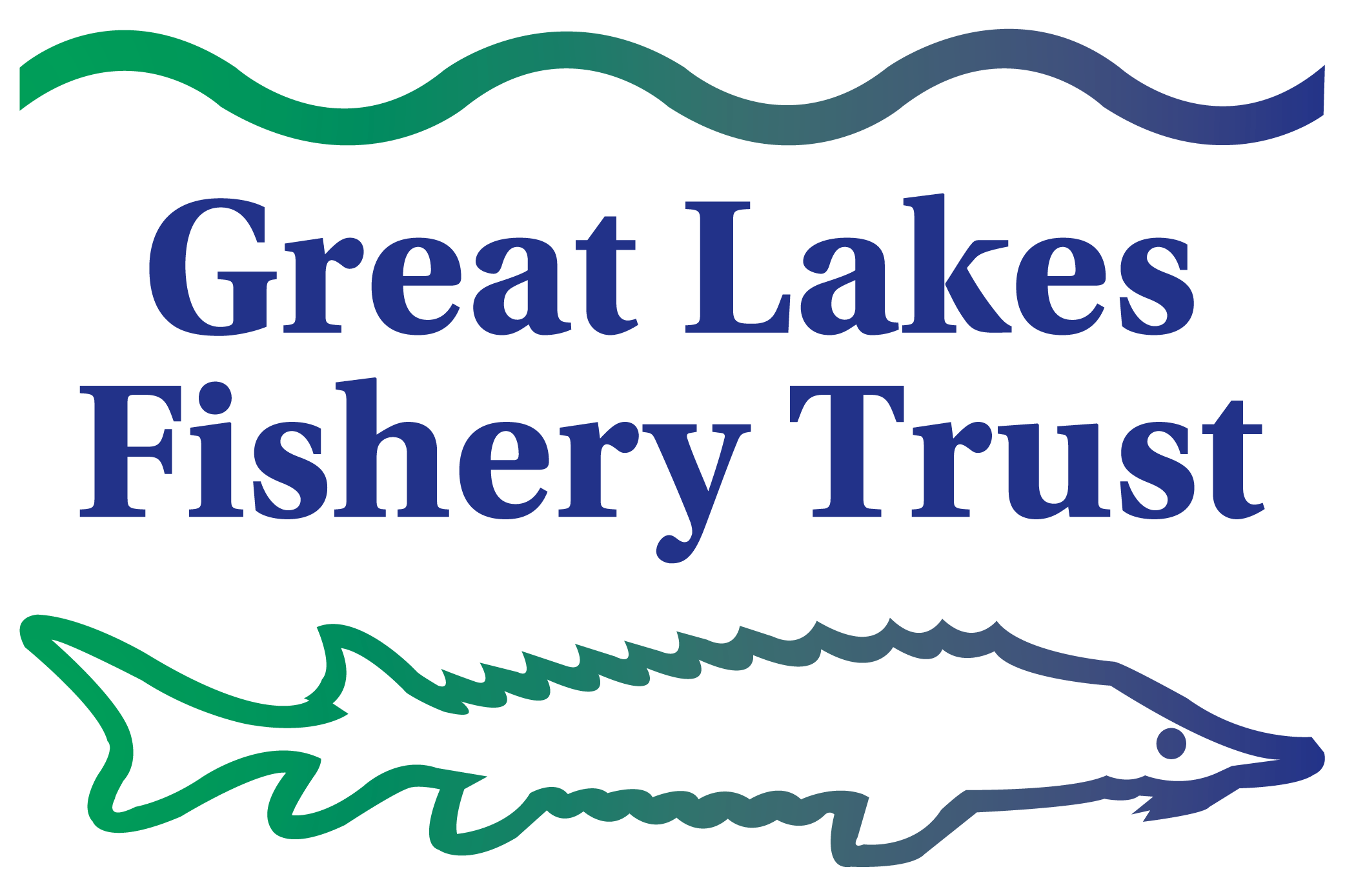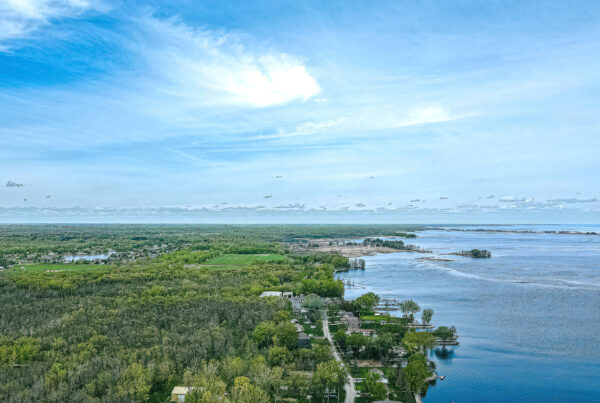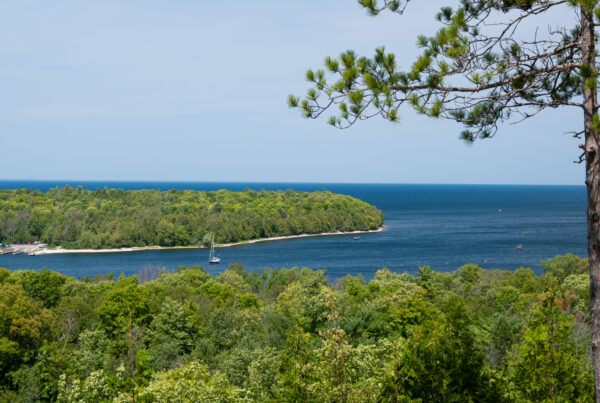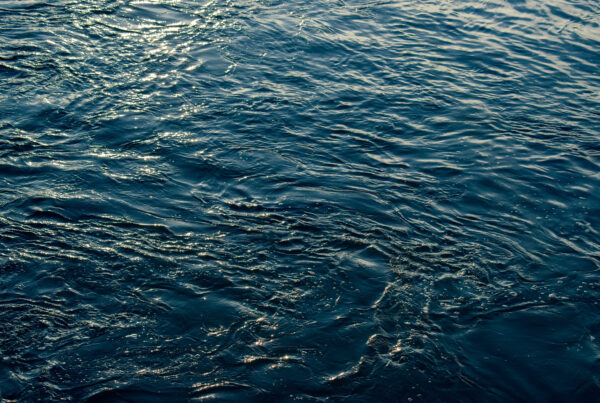For over a decade, the Great Lakes Fishery Trust has supported Lake Superior State University’s (LSSU’s) vision to expand its capacity of its former Aquatic Research Lab by constructing a new facility at the nexus of the upper Great Lakes. The trust maintained its 2009 commitment while the university continued to raise the $14.2 million needed for the investment. In December 2021, the completed Richard and Theresa Barch Center for Freshwater Research and Education (CFRE) held its grand opening.
The CFRE is already strengthening research, student training, and community engagement capacity in the upper Great Lakes region. The facility offers state-of-the-art labs and classrooms, a mesocosm facility for controlled experiments, partner office space, and a public Discovery Center to engage the community. The facility will support research in areas such as aquaculture, fisheries management, invasive species, water quality, and underwater robotics technology development.
As a result of the facility, grant activity and partnerships are already growing, which further emphasizes the need for the center in this important nexus of the Great Lakes. According to CFRE director Dr. Ashley Moerke, professor in LSSU’s School of Natural Resources and Environment, the center hosted a Cooperative Institute of Great Lakes Research workshop and the Michigan American Fisheries Society meeting reception and received positive reactions for both events. Additionally, the U.S. Coast Guard selected the university in a competitive process to host the National Center of Expertise on oil spills that begins in summer 2022.
The trust’s investment in this project has created a center that will work collaboratively to understand environmental issues facing the Great Lakes, train the next generation of scientists and educators, and educate stakeholders to ensure these resources are conserved into the future.
”We are pleased to see the Richard and Theresa Barch Center for Freshwater Research and Education opening and beginning its venture into training future Great Lakes fisheries managers and scientists in this state-of-the-art facility. The entire region will, no doubt, benefit from collaborations with LSSU and this Center.
Tammy J. Newcomb, Ph.D.Senior Water Policy Advisor, Executive Division, Michigan Department of Natural Resources, and Co-chair, Science Advisory Team, Great Lakes Fishery Trust
